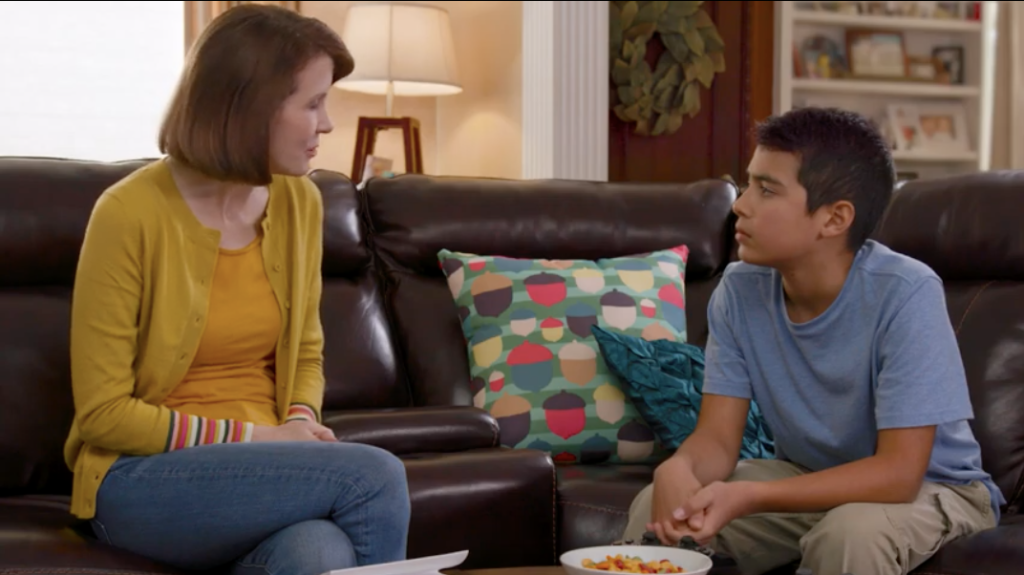Summer and Youth Gambling
Summertime can be a great time to enjoy outdoor activities with our families. It can be a great time for our youth to enjoy free time and/or use that extra free time to work. The downside, with all that extra free time, is they may choose to engage in gambling.
Why Focus on Youth Gambling?
Youth may be gambling with parents unaware of the potential consequences. Parents may not even be aware of their youth’s gambling behaviors. It’s important, especially during the summer months, for parents to be vigilant in guiding youth to make healthy decisions with their time. Let’s take a moment to get on the same page with our gambling terminology.
What Is Gambling?
Gambling is risking anything of value on a game of chance, in hopes of getting something of increased value. This could include money or any other tradable valuables. You have access, especially via the internet, to nearly all forms of gambling. *A study conducted in 2014-15 states that youth are gambling on lottery, lotto, scratch offs, raffles and charity games, and sports in New York. Additionally, youth are gambling in video games through loot boxes, daily fantasy sports, and day trading, which have had technological advancements faster than research can keep up with.
What Is Problem Gambling?
We define problem gambling as any time gambling causes problems in someone’s life. Many times, people associate gambling problems with money, and, although this is true, it is not the only consequence. They could also be struggling with relationship problems, struggling with anxiety and/or depression, problems with school grades and attendance, losing their employment, and health problems due to personal neglect such as not taking necessary medications.
What Is Youth Gambling?
Youth gambling is anytime a person under the age of 24 participates in gambling activities. We define youth as a person under the age of 24 because that is around the age a person’s brain is fully developed. Before that, the brain is not fully developed, especially the prefrontal cortex. That is the part of the brain that’s in charge of weighing out the pros and cons of an activity and making healthy decisions.
Why Might Youth Gamble?
Based on current information being collected through the NYCPG facilitated youth advisory committee focus groups (age 12-14, 15-17, and 18-24), have shown some consistent reasons youth may be gambling.
Money Issues. Money is often an issue among youth who are trying to balance school, work, social life, sports and other engagements. Our committee participants explain that their peers often think of gambling as a quick way to earn money.
Entertainment. Youth focus group participants state that gambling can make games and sports more exciting. Youth specifically discussed the “rush” of winning.
Normalization. Focus group participants state that they think youth gamble because they’re are exposed to gambling, making it seem like a normal activity. The 12-14 and 15-17 age group participants stated that both online and in-home exposure to gambling may be normalizing gambling. This makes it seem like gambling is a safe, acceptable behavior.
Why Talk About Youth and Problem Gambling?
Parents can have a huge impact on the decisions youth make. Parent discussions and gambling-prohibiting statements can help with different ways to obtain money and manage it properly. They can also offer ideas for non-gambling activities, and help youth understand that youth gambling is not normal. *In the same 2014-15 study, over 60% of youth are not gambling. Therefore, youth gambling is not normal.

Youth can change from a non-gambler to a social gambler, to someone struggling with problem gambling at an accelerated speed when compared to adults. Much of this is due to their brain development. Their premature brains struggle to appropriately make healthy decisions, especially with risky decisions like gambling.
Let’s focus on money as their item of value they may be gambling with. Youths’ income can come in a variety of places. They can have a job, receive money for chores performed in the house and around the neighborhood, receive money and/or gift cards for birthdays and holidays, and request or borrow money from parents and other family members. Regardless of where they get their money, youth of any age receive some form of money.
Where Can Youth Gamble?
Let’s assume that youth don’t have access to a casino, a deck of cards, dice, or a group of friends that gamble together. Those are more obvious forms of gambling. Let’s focus on the time youth spend on their devices. Whether it’s their phone, tablet, computer or gaming console, youth are connected to the world in a way that we haven’t seen before. Additionally, our technology is rapidly improving and offering increasing options to gamble at a very steady rate.
It’s especially important to focus on youth because many of the activities youth participate in are things that parents may be unaware of. It’s very difficult to keep track of what youth are doing on these different devices. Even if a parent does their best to monitor the activities that are taking place, youth are far ahead of parents with knowing how to hide their activities.
There are many forms of gambling that youth may be participating in. They could be engaging in traditional gambling activities, such as online casinos that include slot machines, blackjack, and online poker. They may also be engaging in other forms of gambling, such as day trading, daily fantasy sports and mobile sports betting. Finally, many parents may not be aware that youth can gamble through video games.
How Do I Know If My Youth Is Gambling?
One thing to look for is a change in behavior. Every youth has behavior that is characteristic of them in their personalities. We all know that youths’ personalities, opinions, and behaviors change as they mature year by year. Although maturity is normal, it is important to look for extremely uncharacteristic behaviors. Frustration with unknown reasoning, preoccupation and withdrawal from other family members and activities, and an exaggerated display of money would be examples of potential warning signs.
Parents can tell when something is different. They may not know what it is, but they can certainly feel the difference in their youth’s character and behaviors. Parents should trust their instincts and be ready to address youth about gambling.
How Can Parents Address Youth Gambling?
Addressing youth gambling can feel uncomfortable. Especially if youth are part of a family who engages in gambling activities. These activities could be casino gambling, lottery and lotto, scratch-offs, bingo, 50-50 raffles, and much more. It is important to keep in mind that adults are legally able to gamble and have a fully mature brain to make the best choices for themselves. It is important to remember that it is okay to tell youth they cannot engage in activities that older family members or other adults may be doing around them.
An example of this would be using alcohol. Many adults can use alcohol responsibly. They may choose to drink in front of youth. It is illegal for youth to engage in drinking activities, and most parents agree to prohibit youth drinking. Think of gambling as using alcohol. It is a risky activity that is potentially addictive and is not an appropriate or healthy activity for our youth. Parents can impact youths’ feelings of gambling normalcy and whether they should be gambling.
How To Start a Conversation About Gambling.
Discussing any uncomfortable activity with youth can be challenging for parents. Luckily, parents are not alone, and we have resources to support them.
Video Support: On this website, located at YOUthDecideNY.org/videos/, is a page full of videos offering scenarios on starting a conversation with youth of any age. Here, parents can seek videos that can help address youth as young as 6 years old.
Talk2Kids.org: Parents, looking for an easy resource to learn more specifically about having discussions with preteens or younger youth, can visit the Talk2Kids.org website. This website is very specific about information to focus on how to start a conversation with youth about gambling.
MindRide: Any parents interested in how gambling can begin and turn into a problem can visit MindRideNY.com. This website offers a lighthearted view on the path from not gambling, to social gambling and then to problem gambling. It’s a great way to increase your understanding of how someone can head down a pathway of problematic gambling behavior.
YOU(th) Decide: This is our central hub for all youth-focused gambling prevention information and resources. By visiting our parent–focused webpage (YOUthDecideNY.org/for-parents), all parents have access to a large array of resources about youth gambling and how to address it.
Finding Help and Hope
That’s right. There is help and hope. There is help for both youth and parents who are negatively affected by youth gambling.

When visiting NYProblemGamblingHELP.org, visitors will find information about getting support and a baseline idea on what to expect from calling this helpline. If a parent decides to call for support, they will find that every call gets answered directly by a caring, well-trained staff member. Every caller is treated with care and concern, and no caller is pressured into any type of support.
Most youth, *over 60%, do not gamble, but youth that do can quickly start struggling with problem gambling. Learning about gambling behavior, especially on devices, is important during the summer when youth may have an excess of free time. There is an increase in the possibility for youth to have a gambling problem. Those youth that have a gambling problem do affect their families, and those family members are not alone. There is information, there are resources and there is help and hope.
*Youth Development Survey 2014-2015 Report. New York State Office of Alcoholism and Substance Abuse Services. 2015.
